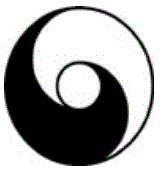Ce qui engendre, c'est la voie, ce qui nourrit, c'est la vertu (cf Laozi 51).
Wen Zi : Le Un est le commencement de toutes les choses
文 子 曰 ﹕ 一 者 , 萬 物 之 始 也 。
Le roi Píng : Qu'entend-t'on par toutes les choses
Wen Zi : Toutes les choses désignent le Ciel et la Terre...
萬 物 ? 萬 物 者 , 天 地 之 謂
Wen Zi demanda : Les rois du passé utilisaient-ils la voie pour gouverner tout sous le Ciel ? Comment s'y prenaient-t'ils ? Lao Zi répondit : ils s'en tenaient au Un et pratiquaient le non-agir (Wu Wei).
Ils suivaient le Ciel et la Terre et accompagnaient les transformations. Le monde entier (Toutes les choses sous le Ciel) est comme un grand récipient qu'on ne peut tenir et sur lequel on ne peut pas agir. Ceux qui cherchent à agir sur lui les endommage. Ceux qui le tiennent le perdent. Tenir l'Un, c'est voir le petit. En voyant le petit, ils pouvaient exprimer leur grandeur. Pratiquer le non-agir, c'est préserver la quiétude. En préservant la quiétude, ils pouvaient être les parangons du monde entier (de toutes les choses sous le Ciel).
|
文 子 問 曰 : 古 之 王 者 , 以 道 蒞 天 下 , 為 之 奈 何 ? 老 子 曰 : 執 一 無 為 , 因 天 地 與 之 變 化 , 天 下 大 器 也 , 不 可 執 也 , 不 可 為 也 , 為 者 敗 之 , 執 者 失 之 。 執 一 者 , 見 小 也 , 小 故 能 成 其 大 也 , 無 為 者 , 守 靜 也 , 守 靜 能 為 天 下 正
|
Wen Zi asked about government. X answered: “Steer them by means of the Way and nourish them by means of virtue; do not show off your worthiness or pressure them with your strength.
Reduce these and hold on to the One, so that nothing you do can be considered profitable by them and nothing you show can be desired by them .
Be morally square without harming them, incorruptible without injuring them, and beneither boastful nor aggressive.
If you steer them by means of the Way, the people will pledge allegiance to you. If you nourish them by means of virtue, the people will submit themselves to you. If you do not show off your worthiness, the people will be satisfied. If you do not pressure them with your strength, the people will be simple. Not to show off your worthiness is self-restraint and not to pressure them with your strength is non-daring.
Lower yourself to assemble them, use gifts to take them in.
Keep yourself intact by means of selfrestraint; secure yourself by means of non-daring.
If you do not lower yourself, they will leave you and disperse. If you do not nourish them, they will turn their back on you and revolt. If you show off your worthiness, the people contend. If you pressure them with your strength, the people have something to resent. If they leave you and disperse, the realm ’s position of power declines. If they turn their back on you and revolt, you who are above lack authority. If the people contend, they easily do wrong. If those below resent you who are above, your position is in danger. If you sincerely cultivate the four imperatives above, then you have almost reached the correct Way.
L said: “Now, if you practice the Way you may be stabbed at, but no matter how brave your opponent is, you will not be hurt. You may be struck at, but no m atter how clever your opponent is, you will not be hit.
However, being stabbed or struck at, even though you are not hurt or hit, is still a disgrace. It would be better if people did not dare to stab or strike you, no matter how brave or clever th ey a re. However, it is not the case that those who do not dare [to stab or strike] lack the intention to do so. It would be better if people were without such intention.
However, it is not the case that those who are without such intention have a heart that is s et on caring for and benefiting others. It would be better if all men and women of the world rejoiced in their desire to care for and benefit others.
If you could be like this, you would be a ruler even without owning territory or a leader even without holding office : everyone in the world would wish to secure and benefit you.
Therefore, being brave at daring is to be killed, being brave at not daring is to live
Virtue is what people value because it makes them grow. If it is properly applied, they will follow orders. Otherwise, they will feel resentment.
Humaneness is what people cherish because it makes them care for others. If it is properly applied, they will not contend. Otherwise, they will engage in dispute.
Righteousness is what people hold in awe because it makes them upright. If it is properly applied, they will be fair and honest. Otherwise, they will be violent.
Propriety is what people revere because it makes them respectful. If it is properly applied, they will be honorable and reverent. Otherwise, they will rebel.
Sageness is no ordinary form of hearing, but full awareness of what one hears;
Wisdom is no ordinary seeing, but full awareness of what one sees
